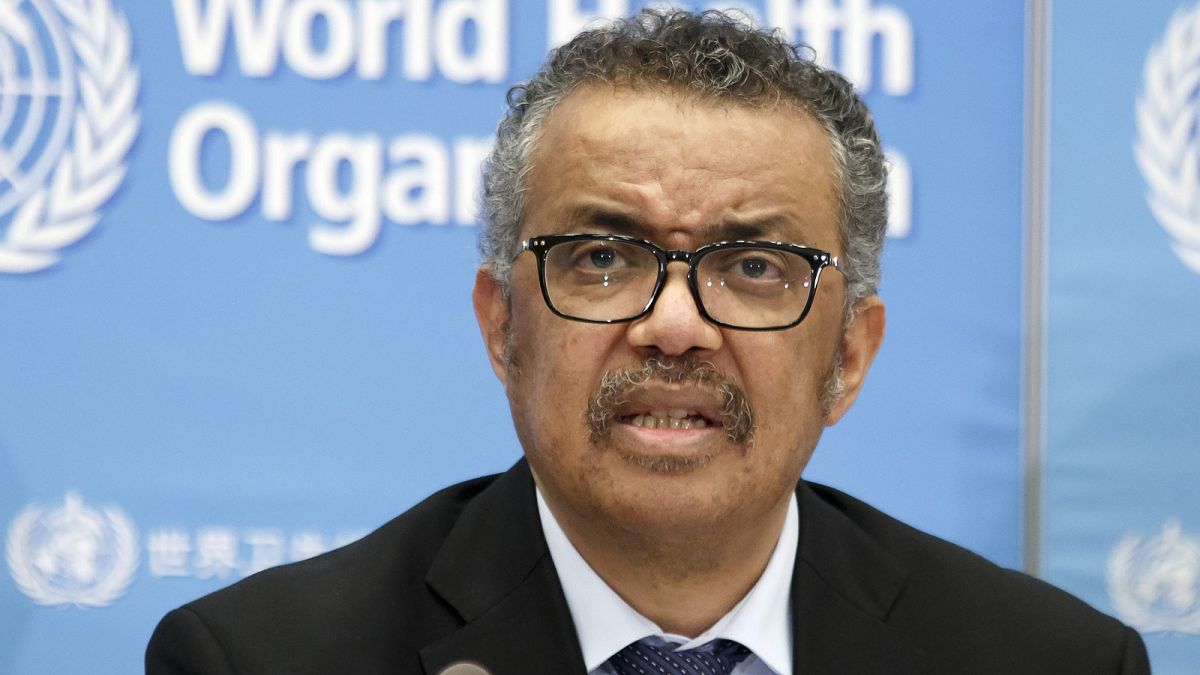The aim is to bring the COVID-19 pandemic under control by pooling resources and sharing any potential vaccine with participating countries, the WHO Director-General Tedros Adhanom Ghebreyesus said.
Watch the WHO Director-General Tedros Adhanom Ghebreyesus lead a briefing on the ongoing coronavirus pandemic in the player above.
There are now potentially 172 countries interested in participating in a global initiative to ensure fair access to a safe and effective coronarvirus vaccine, the World Health Organization (WHO) has announced.
The aim would be to bring the COVID-19 pandemic under control through pooling resources and distributing a potential vaccine to all countries taking part.
If all countries who have shown an interest officially sign up to the scheme, more than 70 per cent of the world's population would be able to access a vaccine through the WHO-led COVAX plan.
“Initially, when there will be limited supply [of vaccines], it’s important to provide the vaccine to those at highest risk around the globe,” WHO Director-General Tedros Adhanom Ghebreyesus said. “This doesn’t just pool risk. It also means that prices will be kept as low as possible.”
There are currently nine candidate vaccines which are part of the initiative with another nine under consideration.
Maximising the portfolio of vaccines increases the probability of success as individual vaccines historically have a high failure rate, according to the WHO.
COVAX aimed to deliver two billion doses of a safe, viable vaccine by the end of 2021, Ghebreyesus said.
"There is light at the end of the tunnel. As I said last week, together we can do it," he added.
Highlighting the efforts of governments around the world to mitigate the economic impact of the coronavirus pandemic, Ghebreyesus, however, warned more funding was “urgently needed to move the portfolio forward.”
The news comes as Russia became the first country in the world to licence a coronavirus vaccine after President Vladimir Putin authorised it ahead of phase 3 trials two weeks ago.
Putin went as far as announcing his daughter had already been inoculated.
Controversially, when the announcement was made, the vaccine had not yet completed advanced trials which would prove it works, something that breaks normal scientific protocol.
WHO chief scientist Dr Soumya Swaminathan indicated that the WHO had asked the Russians to share the data on efficacy.
“Safety needs to be assessed short term but also long term as some side effects are only picked up later on," she said.
Asked whether countries should consider ordering doses of the Russian vaccine, Dr Bruce Aylward, senior advisor to the director-general, said the WHO would not be recommending any vaccines that hadn't passed through its “pre-qualification emergency use licensing programme."
To date, no vaccine has met this milestone.
The emergency authorisation of convalescent plasma as a COVID-19 treatment in the US was also called into question in the briefing.
US President Donald Trump hailed the move as a "breakthrough" that could reduce deaths by 35 per cent.
Dr Swaminathan indicated there was "very low evidence" to show how safe and effective it was as a coronavirus therapy, stating that there were a number of ongoing clinical trials focusing on plasma with only limited data released so far.
"The results are not conclusive. The trials have been relatively small and the results in some cases point to some benefit but have not been conclusive. We have been tracking this and do ongoing... reviews to see where the evidence is shifting or pointing at and the moment it is still very low evidence,” she said.


